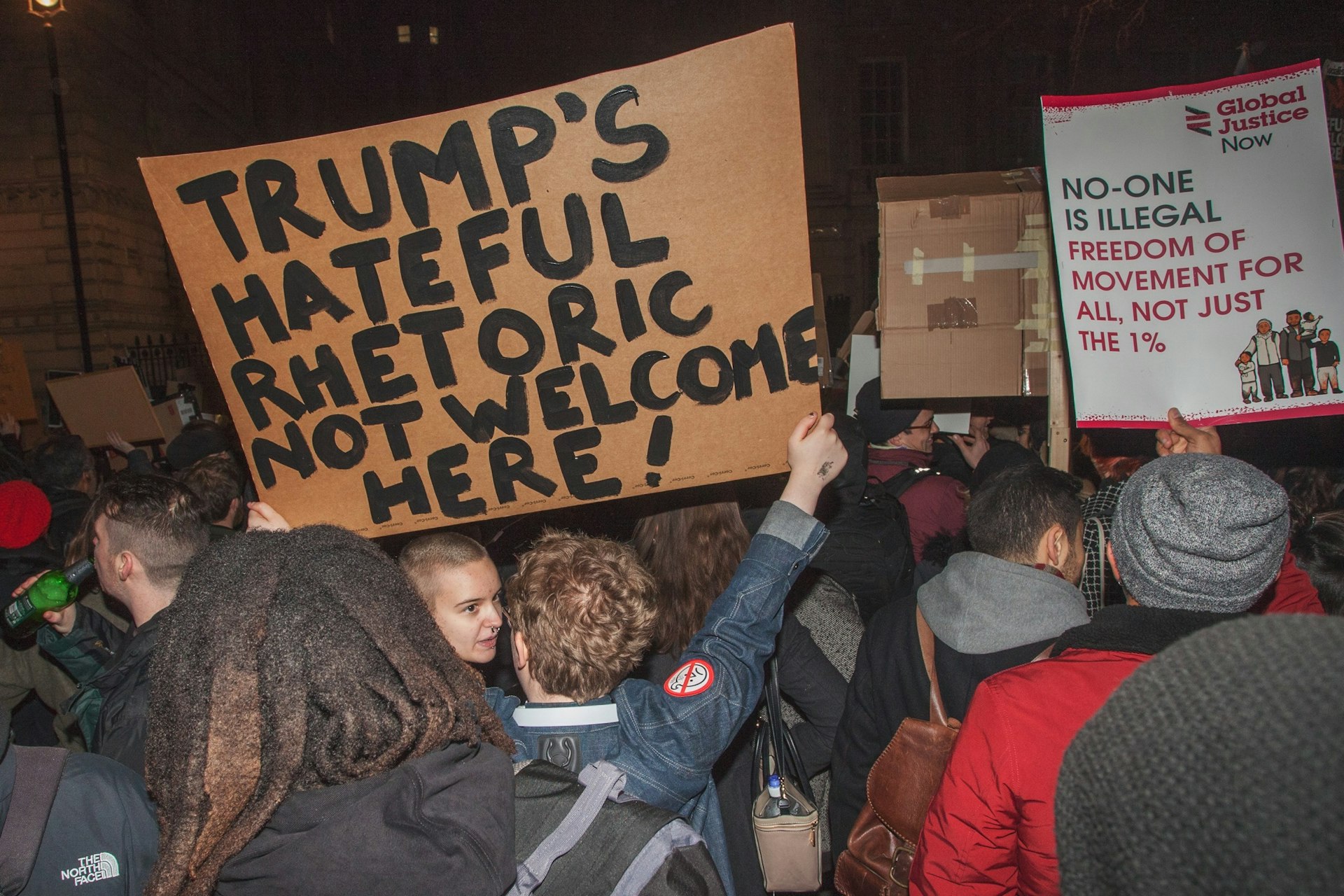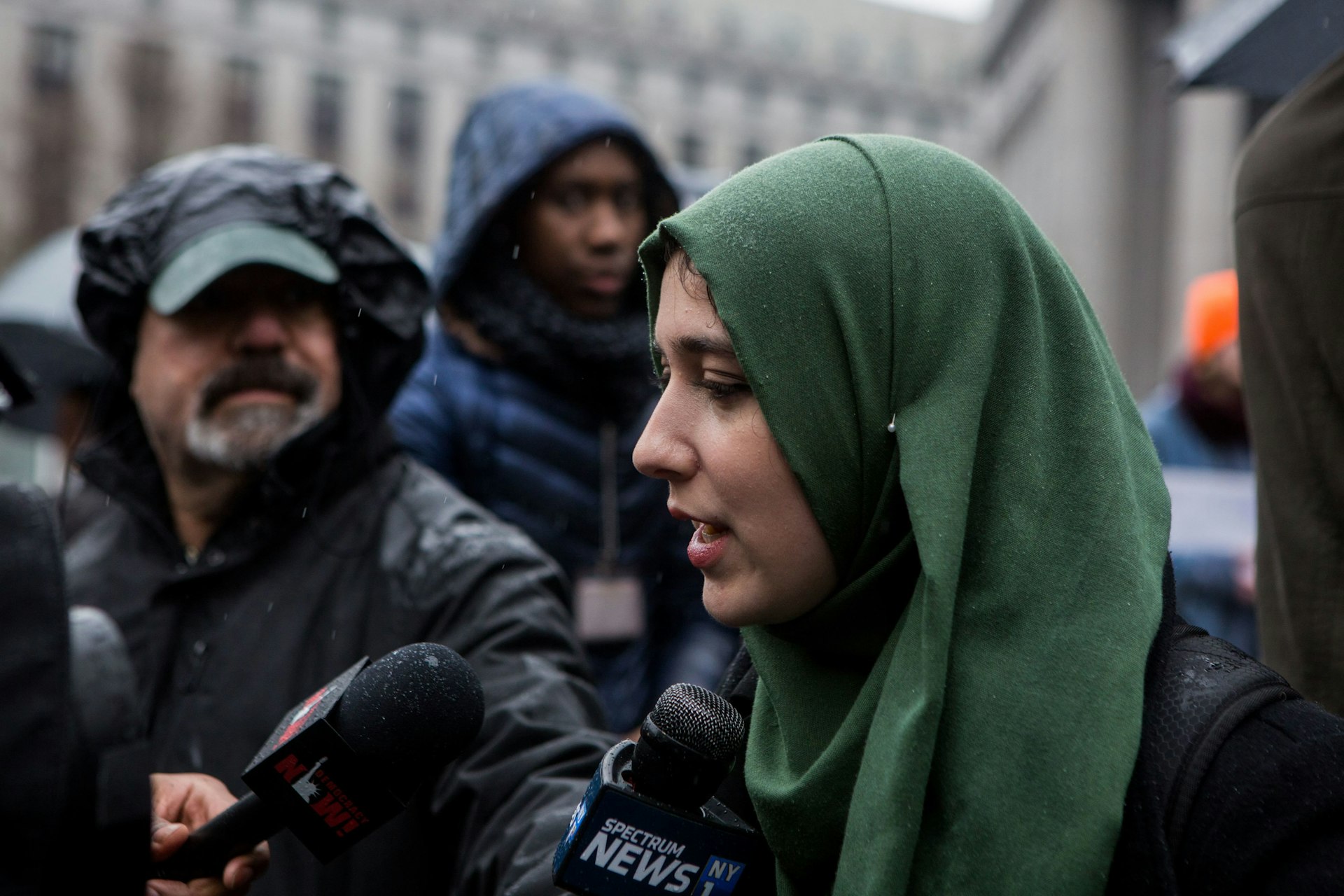
The young Palestinian New Yorker leading the fight against Trump
- Text by Marta Bausells
- Photography by Alex Welsh
At approximately the same time as Mike Pence voted to confirm Betsy DeVos, a billionaire with an unprecedented lack of experience, as U.S. Education Secretary, hundreds of students walked out of class in New York City to stage an anti-Trump mobilisation. For Hebh Jamal, the Palestinian-American activist behind the protest, this was an apt coincidence.
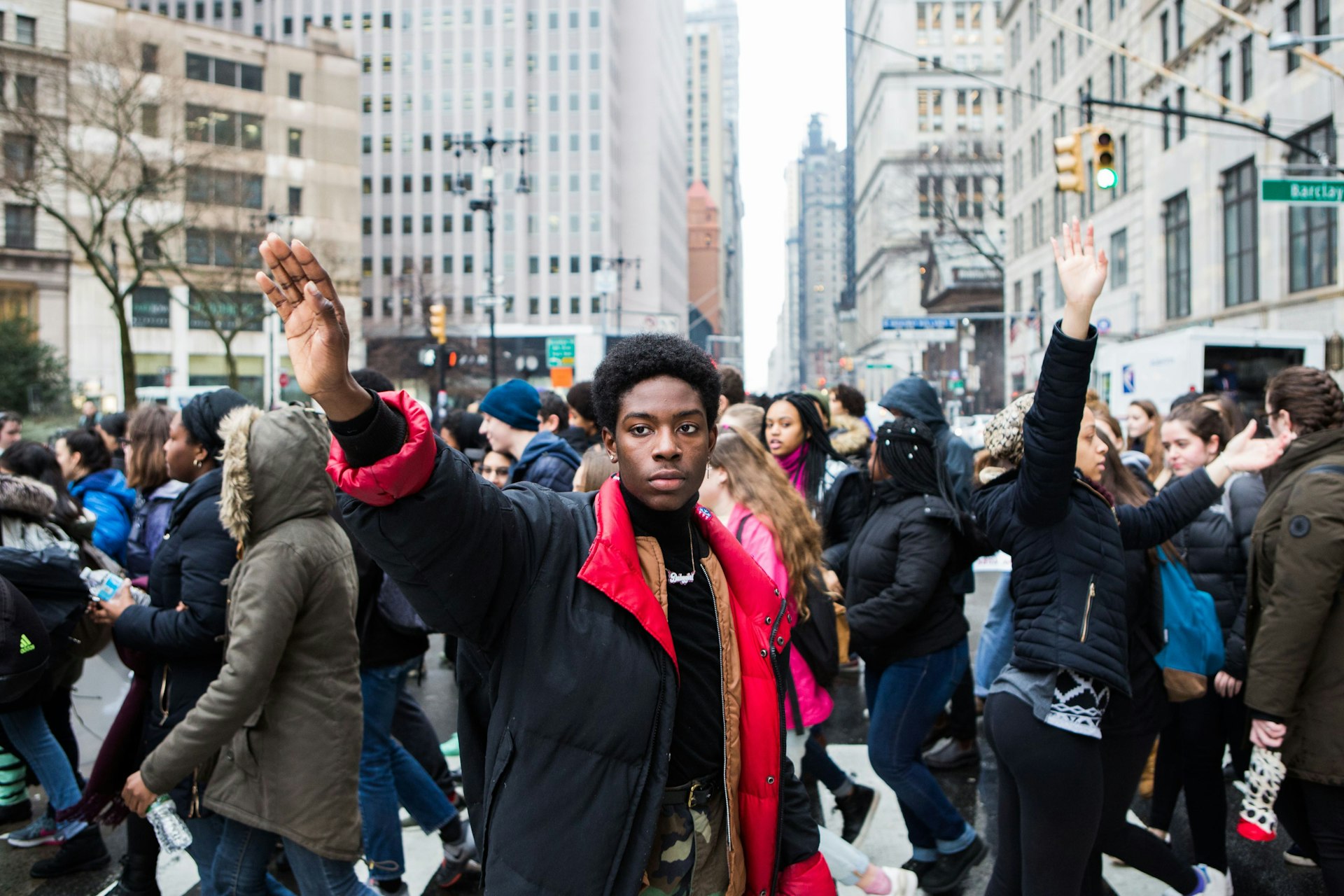
“I want to fight the idea that we don’t have a say in our own education, and for our protests to be around things that affect students,” says Hebh on the phone the morning after. “So it was fitting that this person who wants to privatise education even more was being appointed right then.”
It’s before 8am, and Hebh is talking while she makes her way to her high school in Hell’s Kitchen, Manhattan. Reflecting on the events of the evening before, what satisfies her most is that “a narrative was reached”. The walkouts from 20 schools across the city culminated in a rally in Foley Square, lower Manhattan: “My favourite moment was when we took to the subway there and lots of strangers joined us.” Chants like “We vote next!” and “Education! Not deportation!” were complemented by improvised anti-DeVos outbursts.
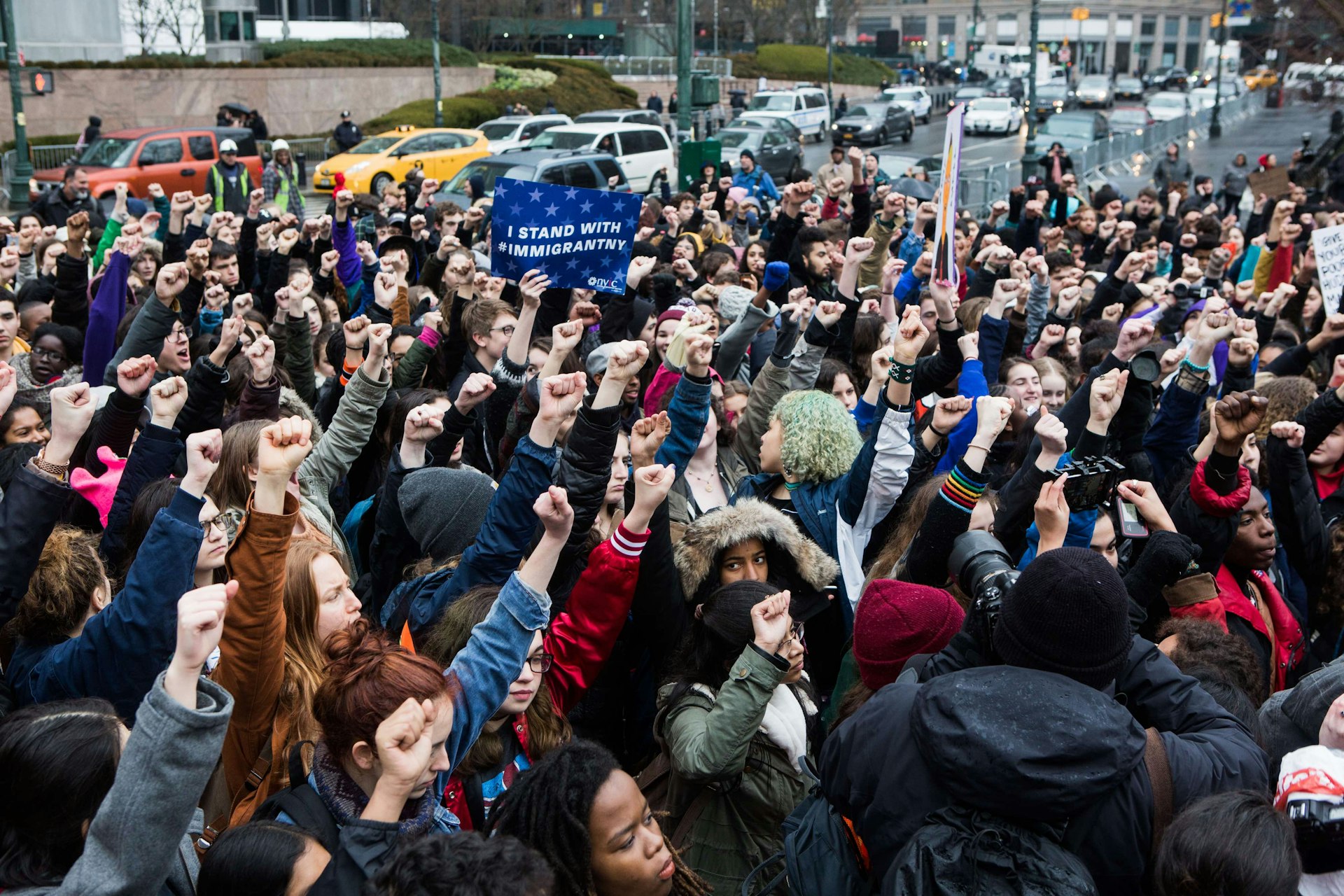
A 17-year-old Palestinian American from the Bronx, Hebh is well-versed in the supreme importance of narratives. Two years ago, she was profiled in a front-page story on the New York Times about young Muslim Americans countering Islamophobia. She sees her role in the big picture as one of accidental-turned-intentional spokesperson. “When that article came out, my community actually felt proud, and many even came up to me and asked me for advice.”
“I never considered myself as a role model. But the younger women in my community never have had a platform to speak their minds, and they’re probably not going to have the opportunity, which is so upsetting to me to realise. That’s why I never turn reporters away, even if I don’t especially like talking to them. I have a platform and try to use it to remind people that this isn’t about me but about a group of people.”
For Muslim Americans like Hebh the last two weeks, in which Trump put in place the travel ban from seven Muslim-majority countries and paused the entire US refugee programme, have had an undeniably “hectic, emotional and very draining” effect.
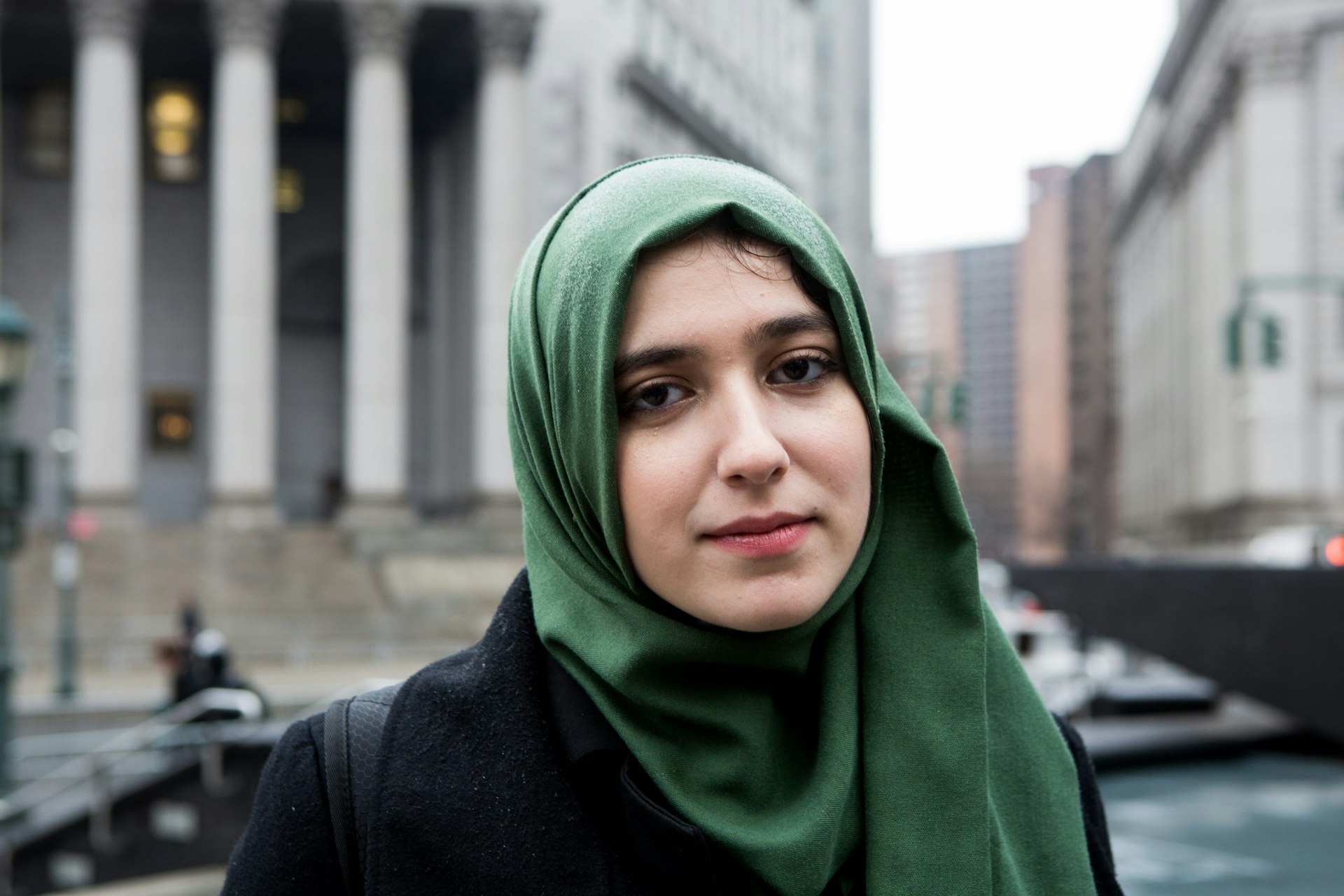
Hebh Jamal
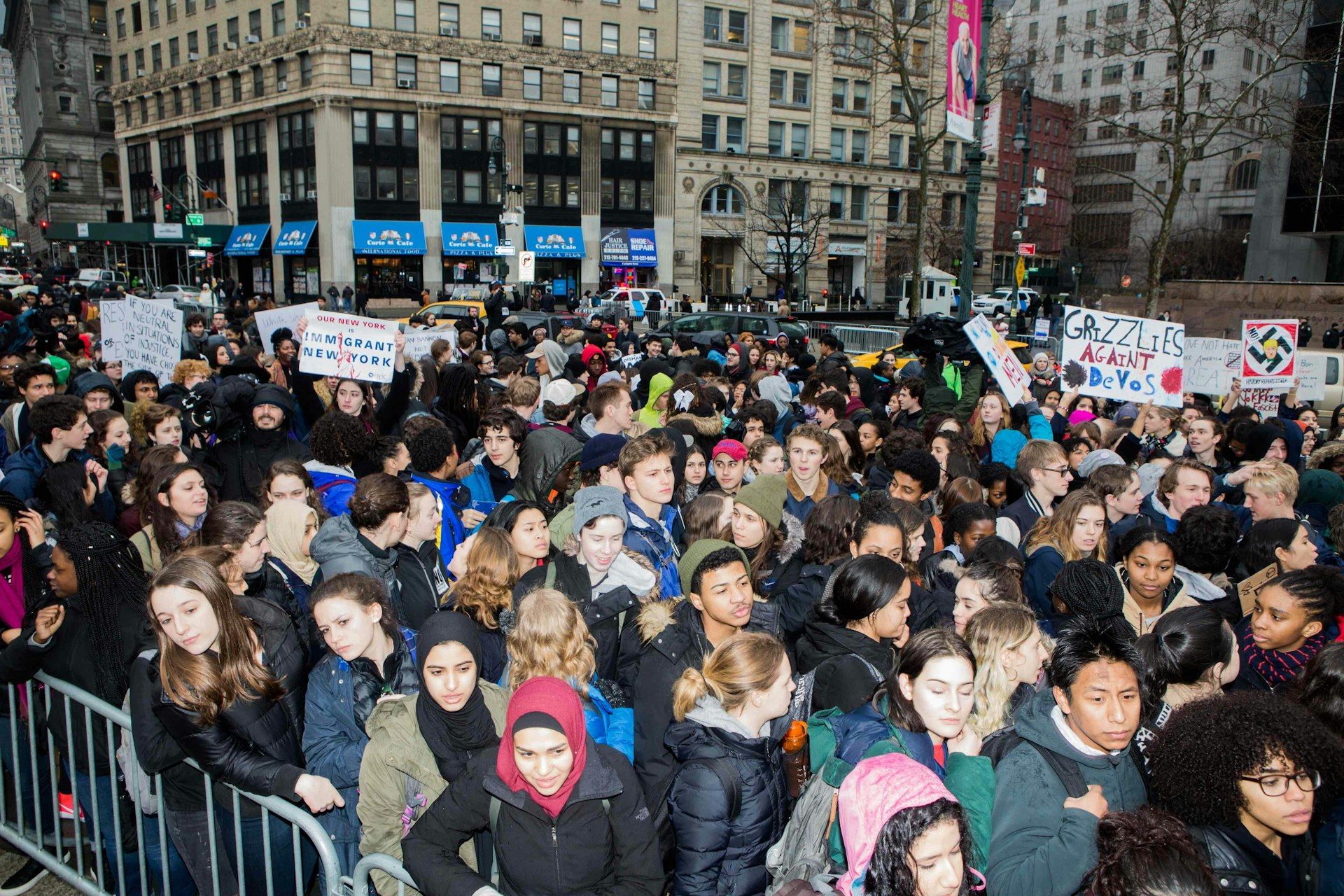
“We students usually want to see role models in the Oval Office,” says Hebh, “but now it’s the opposite of that. We are really trying to figure out what’s best for us.”
The government’s actions have had a direct impact in her community. “I have a lot of friends that happen to be immigrants and who have families from the seven countries … We’ve had lots of conversations about, for instance, which family member we would go to if our parents got deported. This isn’t something someone my age should be thinking about.”
Staging walkouts is also a calculated way to serve the narrative that she is weaving for student activism. “It would be way easier to do protests, but there needs to be some sort of sacrifice, like missing exams or grades, or else we’ll get used to only doing something when it’s convenient. What I want to make visible is the image of students making an impact regardless of the obstacles they have to overcome.”
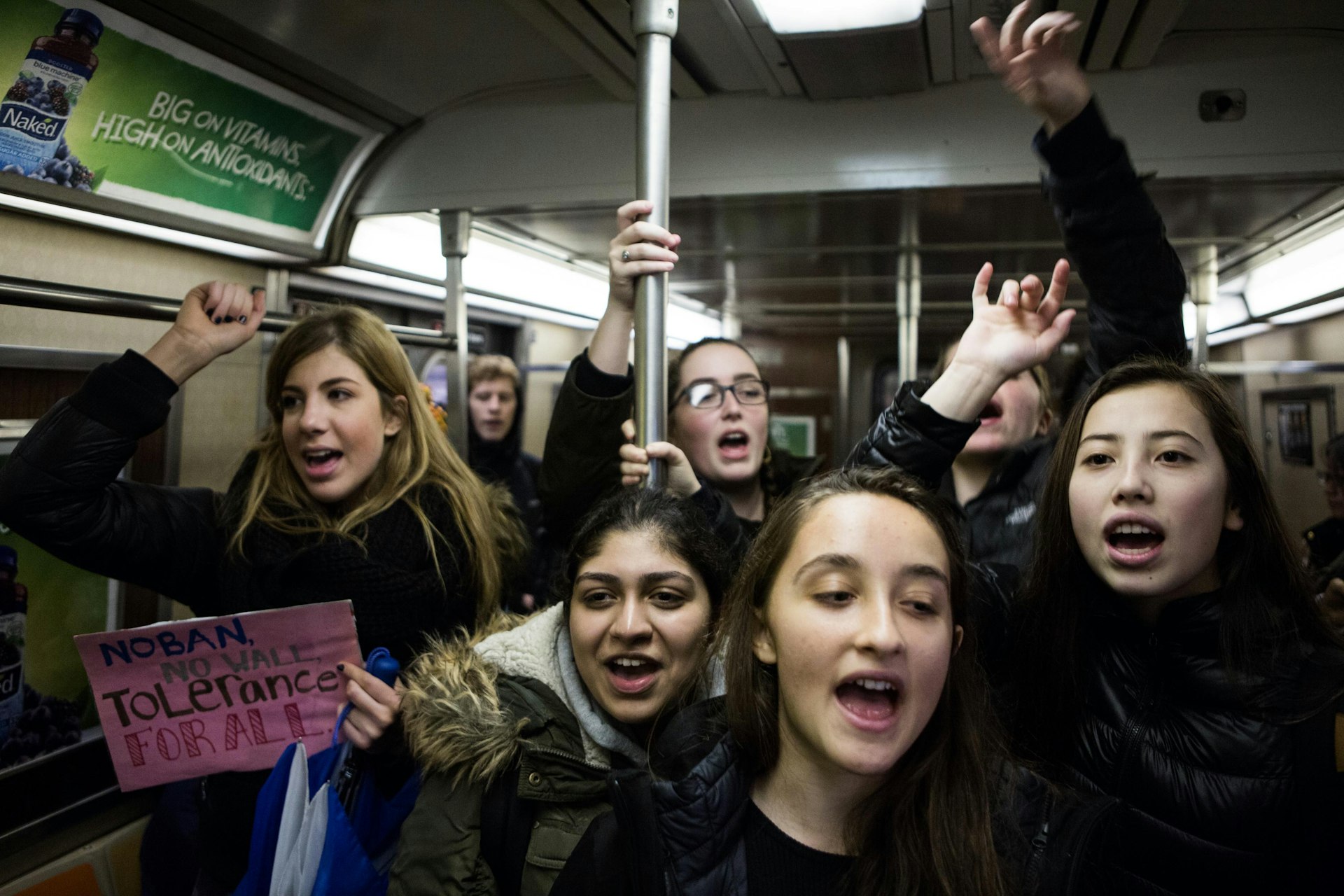
This idea of civil disobedience was inspired by the civil rights movement. “Students across the country did it before, and they really sacrificed way more than I am to get basic human rights.” It was her reading in sophomore year – ranging from treaties on the French Revolution to Martin Luther King’s speeches – that awoke her spirit of protest when she was a young teenager. “A lot of student activism is me repeating the words of people before me. I think a lot of what is happening right now has happened before. We have to take those platforms, adapt them to the present and make sure we have clear messages.”
Jamaal is very clear in her role as an activist, and believes it’s through education that social change comes about. “I believe it’s one of the first steps to social justice, because if you don’t have a society that is properly educated you can’t have a god movement to fight for anything else. What differentiates charity from the Black Panthers, for instance, is that while they also gave students free lunches, they also taught them about the issues affecting them.”
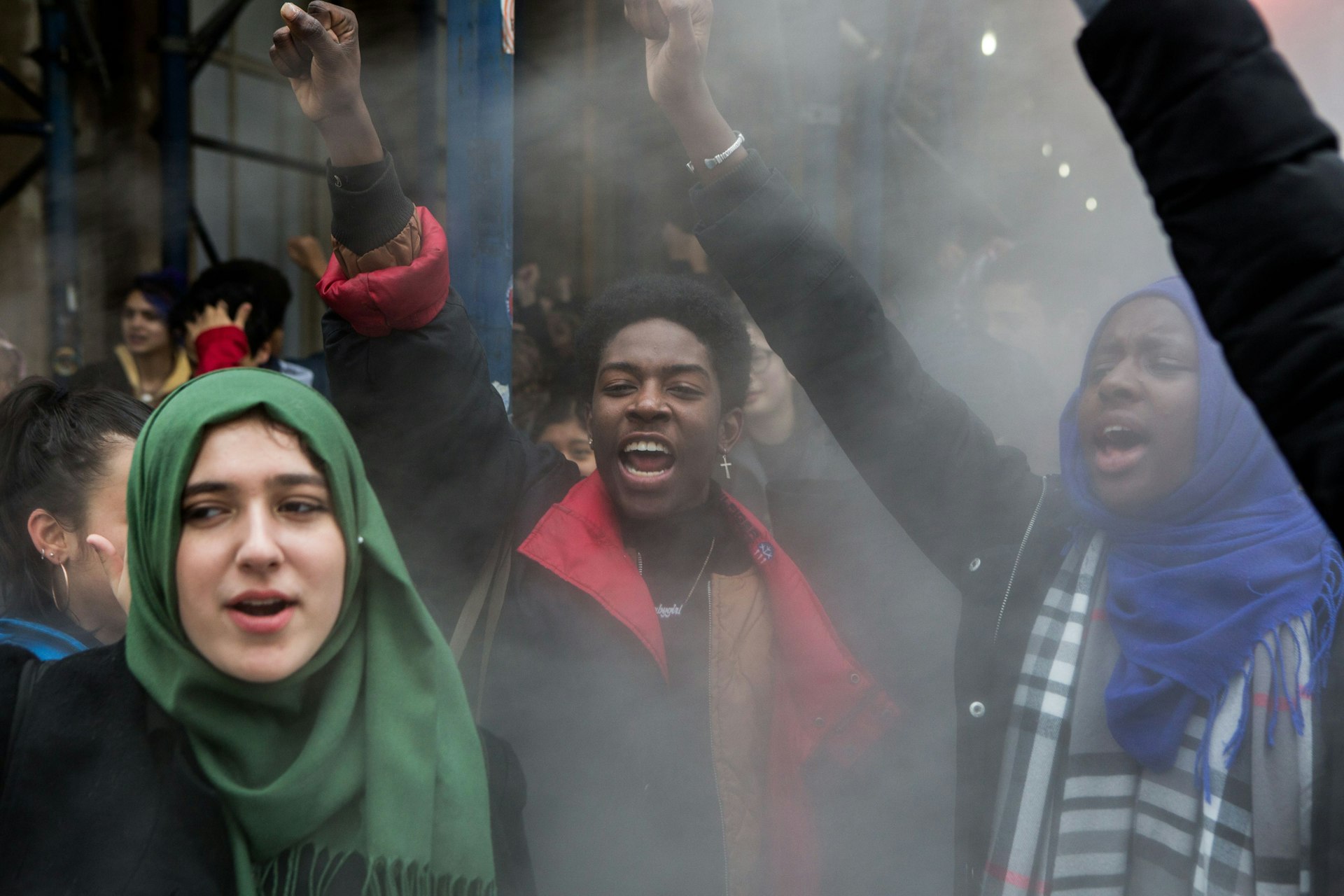
Obviously, under Trump in particular, a lot of student issues intersect with many other struggles. “We’re immigrants, we’re Muslim, we’re black, we’re Latino, we’re LGBT”, she proudly tells me. “We’re all these groups that are being attacked right now. Just because we can’t vote doesn’t mean this doesn’t affect us. Trump’s impact in society doesn’t diminish because of our age.”
In order to combat the rhetoric that is being spouted against minorities, she is adamant that students are key. Hebh and those she stands with are the next generation of leaders, of teachers, and they are the people taking to the front-lines.
New York might be one of the most liberal cities in America but, she reminds me, it still has one of the most segregated school systems in the country, extreme poverty and homelessness too. “Every city has its problems. As students who are part of that community we have to act to stop things happening literally in front of us.” Her next steps are, in fact, to push for a city-wide coalition (which she hopes will become national) to create an “action plan” to take on Trump and all that comes with him.
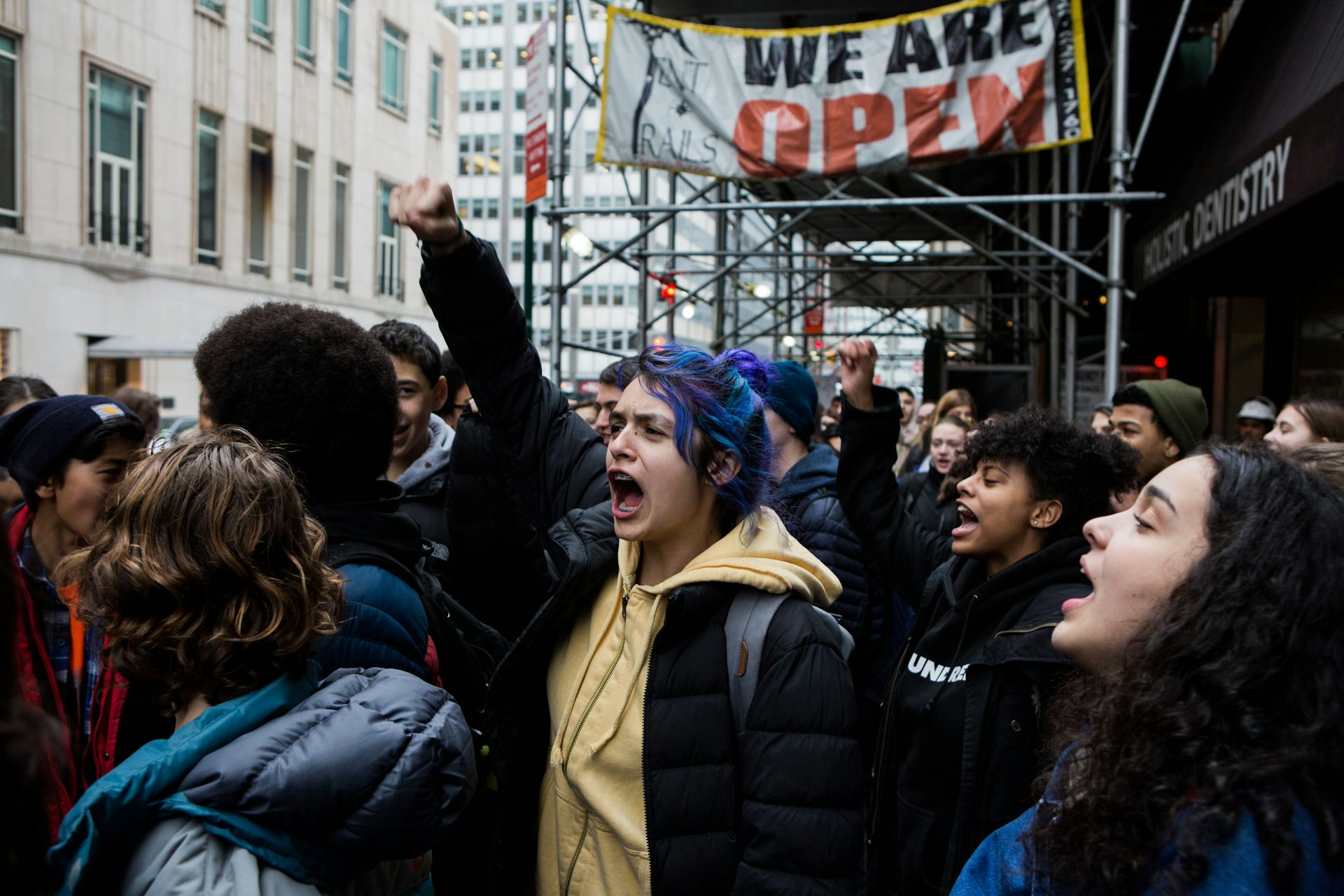
Inspired by Linda Sarsour and Cornel West, Jamal is certain that talk will turn into political action. “We could have one of the students elected for city council in the future.” In the meantime, she says, “the most effective thing you can do is engage in conversation with people. The government and its supporters have a clear message on most issues. We should talk and have a unified message too.”
